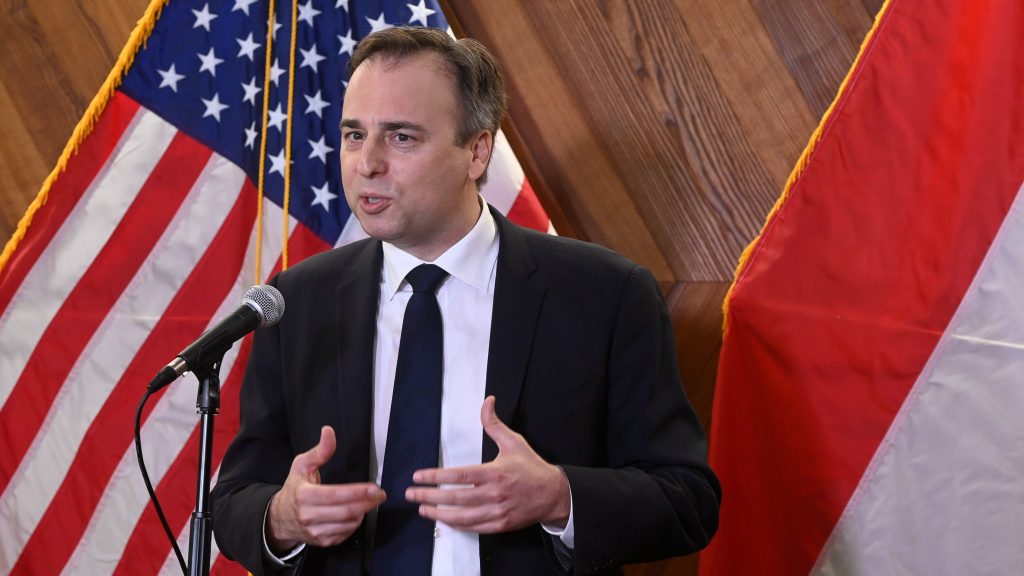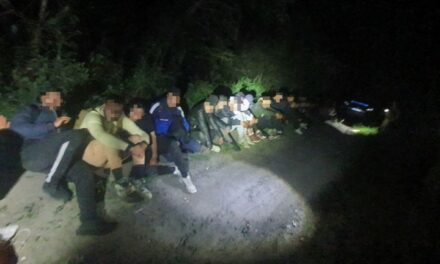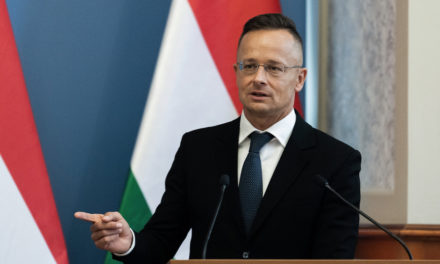Observers of Hungarian-American relations cannot recall a single ambassador - neither Democrat nor Republican - who has had such a bad relationship with any Hungarian government since 1990.
According to some sources close to the government, it can be traced back to Ambassador David Pressman's decision that the American side became tougher on the matter of Hungarian citizens entering the US - at least that's how it was perceived on the Hungarian side. The move also surprised the top management of the Hungarian state administration.
Previously, the negotiations with the Americans in this sensitive matter were apparently going well, in which the Hungarians are not willing to share the data of dual-citizen Hungarians abroad - and certainly not en masse - while the Americans demanded security guarantees for the more than one million dual citizens naturalized in the 2010s. mentioning his Hungarian passport.
Initially, the Americans would have demanded the data of all dual citizens - even though they would hardly release them in the reverse case, because it is unacceptable from a data protection point of view - but after a while they realized that this was impossible and backed down, and finally hardened again.
A source of the Magyar Nemzet reported that the data of 80-85 people were checked with the Americans on a case-by-case basis, so according to him, it does not correspond to reality that the Hungarians did not cooperate with their diplomats.
However, the American embassy claims that the tightening of the conditions for the electronic travel authorization (ESTA), which can be requested on the Internet, was necessary for all Hungarian citizens because the Hungarian government "does not remedy the concerns that have arisen and has not done anything to ensure that the requirements of the VWP (the visa waiver program) comply in all respects”.
Hungary acted on each and every specific American law enforcement request, the criminal prosecution took place, the violators were deprived of their Hungarian citizenship, so the statement of the American foreign affairs spokesperson is misleading and false - Bence Rétvári, the Parliamentary State Secretary of the Ministry of the Interior, responded to Matthew Miller's statement.
The American foreign affairs spokesperson previously spoke about the need for the tightening because criminals were also able to obtain Hungarian passports, as the verification of the identity of those applying for Hungarian citizenship was not adequate in 2020, before the introduction of biometric passports in Hungary.
The ESTA of Hungarians is now valid for only one year instead of the previous two, and is limited to one-time use. That is, if someone travels across the Canadian border to see Niagara Falls from the north side, they cannot return to the United States with the same ESTA. Those born outside Hungary's present-day borders cannot receive an ESTA at all, they need an American visa to enter, whether they were born in Romania or, say, the Netherlands - but this has been the case until now.
Pressman, who arrived in Budapest less than a year ago - a personal appointee of President Joe Biden - has so far had a scandalous service here, characterized by a war of declarations that has become mutual rather than demonstrable diplomatic results.
Observers of Hungarian-American relations cannot recall a single ambassador - neither Democrat nor Republican - who has had such a bad relationship with any Hungarian government since 1990. (In the 2010s, André Goodfriend, who also has a bad memory, was not an ambassador, but headed the Szabadság tér foreign mission as a charge d'affaires.) A diplomatic source mentioned that while Pressman wants to get in touch with Prime Minister Viktor Orbán - although he has not succeeded in eleven months so far - and He would meet with Foreign Minister Péter Szijjártó (he had one or two meetings with him), and he is apparently not interested in the small diplomatic work.
"And he has not reciprocated the gesture so far," said the source, referring to the fact that the Hungarian government represented itself at a remarkably high level on the Americans' national holiday with the intention of reducing the political tension between the two parties. Deputy Prime Minister Zsolt Semjén and Interior Minister Sándor Pintér were also present at the July 4 reception.
Moreover, the situation could be even worse; that is why government sources hope that the current American entry sanction punishing Hungarians is only a temporary measure, and that Hungarian citizens can return to the full circle of those who enjoy a visa exemption in America (up to 90 days) as soon as possible.
The nightmare is the restoration of the pre-2009 visa requirement: the visa is much more expensive compared to EFTA, which costs pennies in comparison (the price of a tourist visa is currently $185, HUF 67,000) and difficult to obtain.
Along with this, 755 visas were issued at the American consulate in Budapest in June, most of them B-visas issued to tourists and businessmen. According to the latest data (2022), the rejection rate of B-visas applied for in Budapest is 8.44 percent. We understand that the Hungarian diplomacy wants to prevent the introduction of the visa requirement because it would force them to take an appropriate response, which would further distance the parties from each other.












